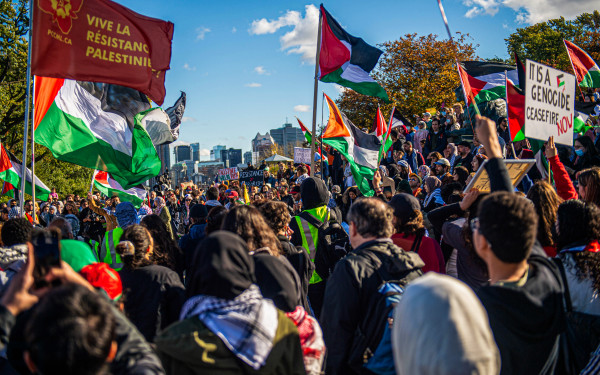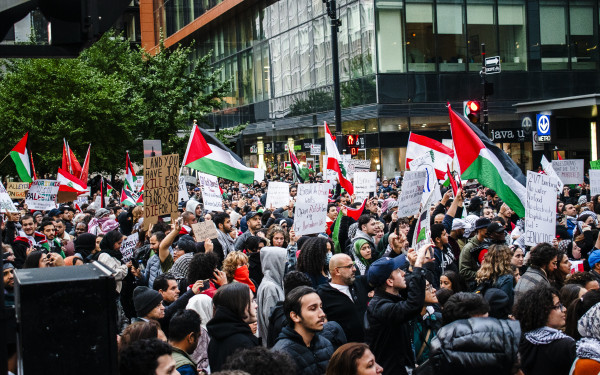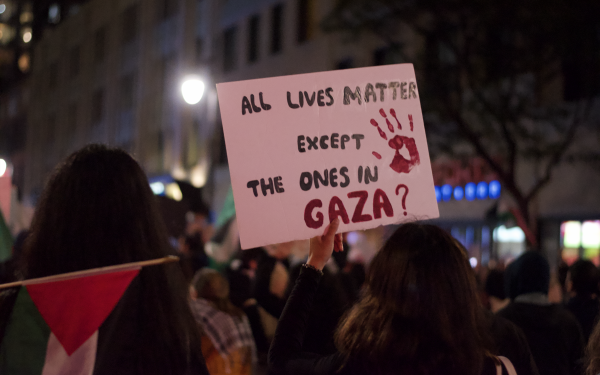Historic pro-Palestinian protest demands end to Canadian complicity
Approximately 50,000 people gathered on Place-des-Arts to pressure the government into supporting a ceasefire
On the afternoon of Nov. 4, over 50,000 people gathered to the sound of Julia Boutros’ resistance songs at Place-des-Arts in downtown Montreal, to protest Canada’s complicity in the current war on Gaza.
That same day, Canadian Prime Minister Justin Trudeau and Israeli Prime Minister Benjamin Netanyahu spoke and “reaffirmed the strong relationship between Israel and Canada.” Trudeau also “expressed Canada’s support for Israel and its right to defend itself in accordance with international law.”
For over four hours, the crowd marched down to the Maison Radio-Canada on 1000 Papineau Ave. where they demanded an immediate ceasefire, a lift of the siege on Gaza and an end to Canadian aid sent to the Israeli military. This was the largest pro-Palestinian protest in the city’s history, according to the organizing group Palestinian Youth Movement (PYM) Montreal.
Nov. 4 was dubbed National Day of Action for Palestine, during which the PYM organized the 100K March for Gaza. The Montreal protest was one of over 20 that happened simultaneously in cities across Canada. They were all planned to support the initial protest organized in Washington D.C. where over 300,000 people gathered.
“Being in large numbers and continuing this fight will be hard to ignore for governments and politicians,” said Rania, a PYM organizer who chose to remain anonymous for safety reasons. “They must answer to our demands.”
Most of this protest’s chants were aimed at the responsibility the Canadian government bears in regard to funding Israel’s weapons. Over $20 million worth of military exports were sent to Israel from Canada in 2022, according to Global Affairs Canada. With phrases like “Justin Trudeau your hands are red, 9,000 people dead”.
“This government does not represent us,” said protester Fernand Deschamps. “It does not speak for us. Canadians have always aspired for peace.”
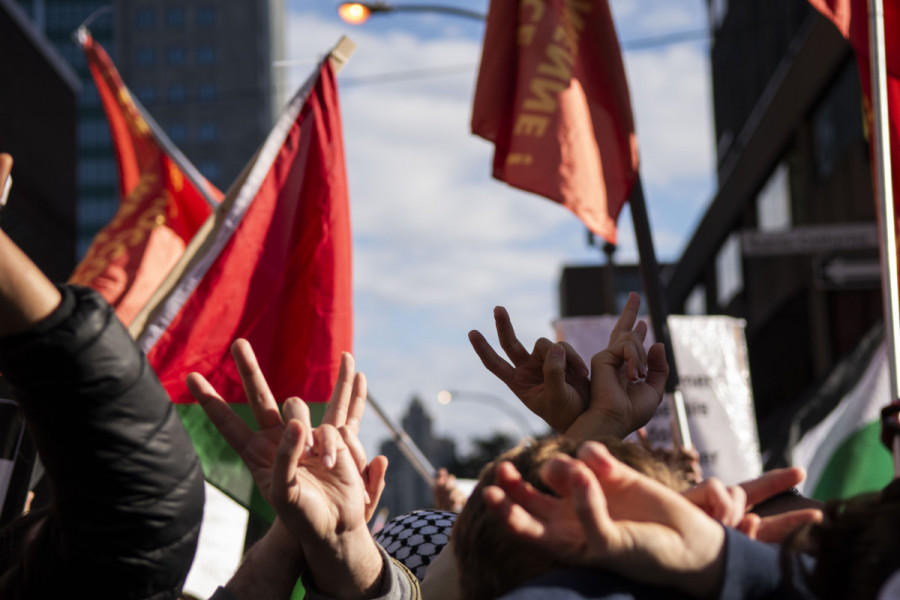
While 33 MPs have signed an open letter to Trudeau asking for a ceasefire, Trudeau has not yet commented on it. In a video published by the Cable Public Affairs Channel on Nov. 3, Trudeau mentions a “humanitarian pause” and a “ceasing of the levels of violence.”
“Everybody say ceasefire,” Iraqi rapper Narcy asked the crowd to repeat after him. “If you can say it, so can [Trudeau].”
Rania also mentioned the importance of Canada’s abstention from voting in favour of a U.N. resolution that calls for an “immediate and sustained humanitarian truce.”
“Canada has [not voted in favour of] a ceasefire,” she said. “This means that Canada is against any prospect of peace.”
Protestors headed to the Radio-Canada head offices, where they took to plastering posters with the names of the Palestinian people who were killed in the last 27 days. They also painted the building’s doors red to symbolize the death of the 35 Palestinian journalists’ blood.
Protestors then blocked all entrances and exits to the building, effectively trapping employees inside.
Organizers also informed the protesters of the CBC’s internal language guidance that denies the existence of a “modern country of Palestine,” and therefore prohibits the use of the name of the country in its news coverage. They also mentioned the 2020 incident during which CBC Radio host Duncan McCue was asked to apologize after using the word “Palestine” during an interview with Joe Sacco, the author of the graphic novel Palestine.
Protesters expressed their anger at the media and the government for not using words such as “genocide” to describe the situation in Gaza.
In his speech Mustafa Hennawi highlighted the importance of community action through boycott, divestment and sanctions. He also brought up the protesters in Oakland, CA who blocked a U.S. military supply ship believed to be headed to Israel.
Overriding a need for justice was the grief behind 50,000 Montrealers collectively mourning the loss of nearly 10,000 Palestinians. Attendees persevered through their pain, chanted with hoarse voices and finished their speeches with tears streaming down their faces.
“We’re all Palestinian,” said Oussama Boubryem, a protester. “No matter one’s nationality, the people in Palestine are our grandmothers, grandfathers, our ancestors. We will come out here every week, every day, for every protest. That’s for sure.”

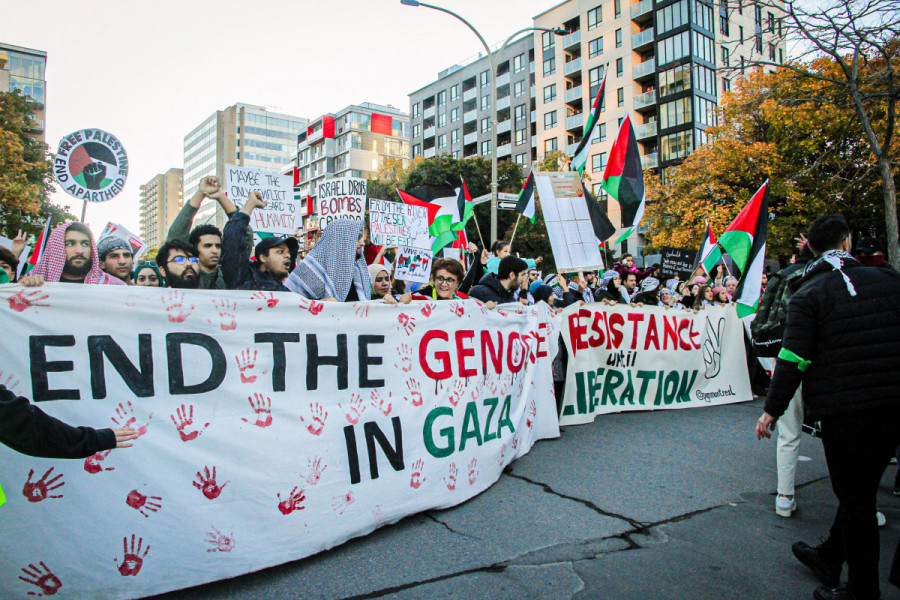


_2_600_375_90_s_c1.jpg)
